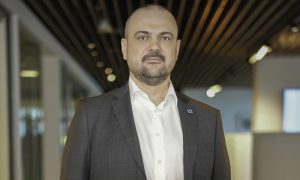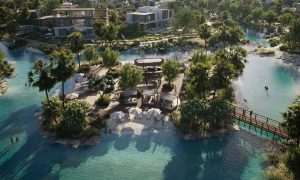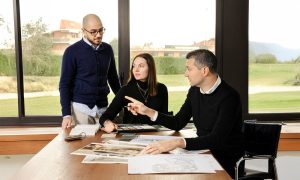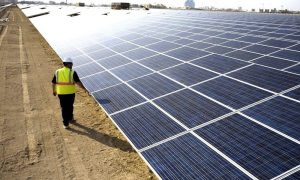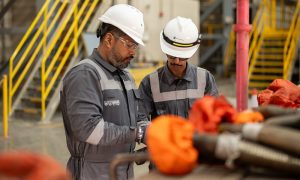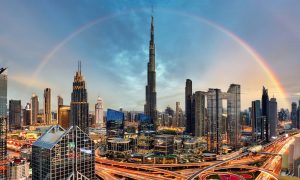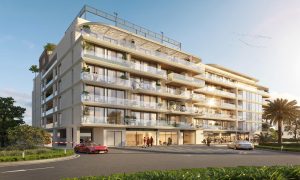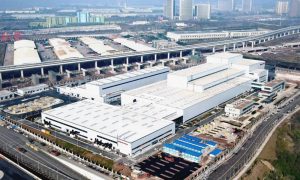KONE introduces world’s first digital elevator series to MEA region
DX Class elevators feature built-in connectivity, enabling users to enjoy ‘new and enhanced experiences’

KONE, the global supplier and manufacturer of elevator and escalator technology, has introduced the world’s first digital elevator series to the Middle East and Africa.
In a statement, KONE said that the DX Class elevators feature class-leading built-in connectivity, enabling users to enjoy ‘a new and enhanced experience that combines the very best in design, technology, new materials, apps and services’.
It added that the KONE DX Class series is available across markets in the region, beginning with the United Arab Emirates, Saudi Arabia, Qatar and Egypt as focus markets for regional growth.
KONE explained that the DX Class — the DX standing for “digital experience” — recasts the role of elevators in buildings, with the elevator no longer merely a way to travel between floors, but an integral and integrated platform that offers ‘intuitive, ambient and connected experiences that extend from the lobby throughout the building’.
For KONE’s customers, such as developers and building owners, where design and differentiation are critical, a key advantage is the ability to adapt and upgrade the elevator experience according to needs now and in the future. KONE’s flexibility can support any building, no matter its age, in levelling up its infrastructure at any time to become a smart building, regardless of whether the existing equipment is manufactured by KONE, the statement continued.
Ruban Bilen, Regional Interim Managing Director of KONE Middle East and Africa commented, “The KONE DX Class cleverly caters to the modern demands of our customers in the region, providing added convenience, safety, security and ease of use; particularly in the wake of COVID-19.
“As we further expand our pioneering smart building solutions, we’re bringing our customers in the Middle East and Africa the ability to mass-customise services for their tenants. The latest introduction of the DX Class gives building developers and managers the ability to upgrade the value of their building, for prospective buyers and tenants respectively, by creating an integrated and easily adaptable building experience.
“In addition, GCC countries are prioritising sustainability now more than ever before where green initiatives, sustainability goals and green building support are a major part of each nation’s development visions. KONE shares the same vision and aims to make the world’s cities better and more sustainable places to live in.
“This can be recognised through its latest DX Class which offers design options and innovations, including anti-stain, anti-scratch, and anti-bacterial surfaces and sustainable materials to meet green building criteria. This is our response to the ongoing evolution of the urban world, and we will continue to deliver new experiences to users and — significantly — helping them stay safe and healthy in a region where life is changing at the speed of technology.” added Bilen.
He highlighted that beyond aesthetics, there are many invisible ways in which the smart materials and finishes in the new KONE DX Class elevators improve hygiene and add to peace of mind. Importantly, digital services can be activated remotely as customers need, without having to visit the site to install anything.
Furthermore, customers can also take advantage of planning tools, including our virtual car designer, tools for energy modelling as well as People Flow and consulting services. These features are joined by a modern suite of functionalities perfectly in tune with such a future-focused region, Bilen continued.
Customers will also be able to tailor and plug in additional software and services for elevators throughout the entire lifetime of a building. By using open application programming interfaces (APIs), KONE’s approach makes it easy to manage and integrate different devices, apps and services with new and existing systems.
For elevator passengers this brings a host of new, multisensory experiences inside the elevator, combining physical hardware and digital services, the company said, adding that any elevator can benefit from these upgrades and these solutions are not limited to elevators that utilize KONE equipment.
‘KONE DX enables existing buildings to become smart while helping to provide the benefits that smart elevators bring. This means any building of any age can be given a facelift, to provide the latest user experience. It means moving from “modernizing because of age or obsolescence” to “modernizing for customer experience and building value”’, the statement said.
The company added that it has worked closely with customers in the region to develop and define the KONE DX elevators to best meet their fast-changing needs. New technologies can help create integrated and easily adaptable building experiences. As buildings evolve, the elevators can also simultaneously evolve in ways that many people would not otherwise expect.
Azzam Messaykeh, Managing Director of KONE in United Arab Emirates (UAE) and Oman commented, “KONE is a pioneer of digitalisation and smart solutions in the region, and though its DX Class series it enables any building to transform into a smart building, supporting developers and managers to confidently differentiate themselves in the saturated development industry. These upgrades also enable a seamless and efficient flow of people which complements the UAE’s Vision 2030, where the government aims to develop a sufficient and resilient infrastructure that is capable of supporting anticipated economic growth.”
The new elevator class have also been designed to contribute to buildings’ sustainability initiatives and energy efficiency, combining materials that meet internationally recognized green building standards including BREEAM and LEED, Messaykeh said.
This is in-keeping with the region’s growing eco-consciousness In the UAE this can be reflected in the launch of its Green Economy Initiative in 2012 and its commitment to achieve the Sustainable Development Goals established by the UN’s 2030 Agenda — a commitment also made by Saudi Arabia’s local leadership.






